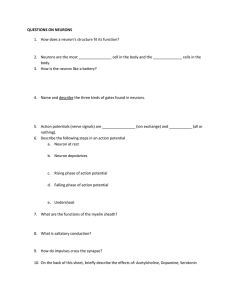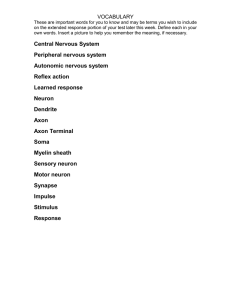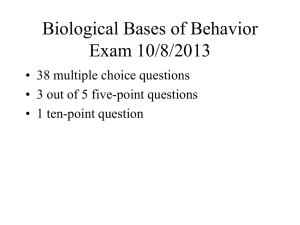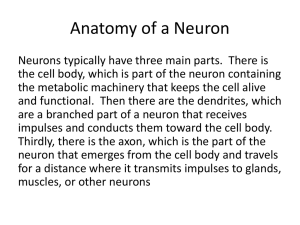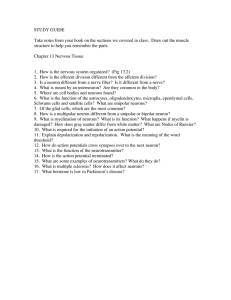Neuron & Action Potential Webquest
advertisement
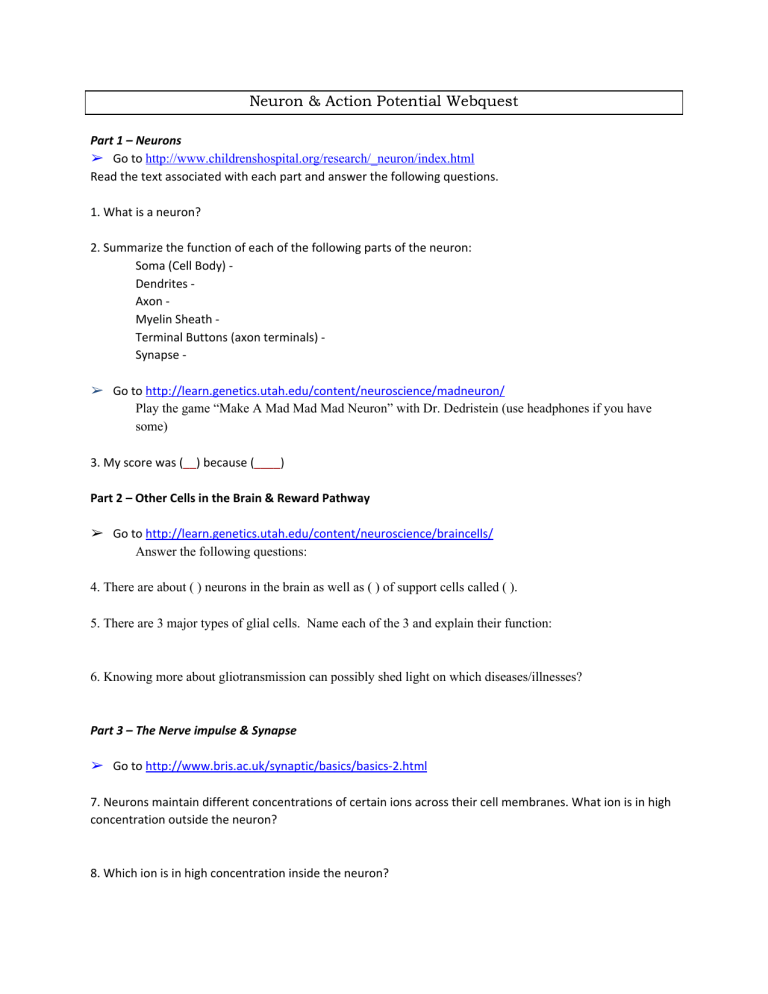
Neuron & Action Potential Webquest Part 1 – Neurons ➢ Go to http://www.childrenshospital.org/research/_neuron/index.html Read the text associated with each part and answer the following questions. 1. What is a neuron? 2. Summarize the function of each of the following parts of the neuron: Soma (Cell Body) Dendrites Axon Myelin Sheath Terminal Buttons (axon terminals) Synapse ➢ Go to http://learn.genetics.utah.edu/content/neuroscience/madneuron/ Play the game “Make A Mad Mad Mad Neuron” with Dr. Dedristein (use headphones if you have some) 3. My score was (__) because (____) Part 2 – Other Cells in the Brain & Reward Pathway ➢ Go to http://learn.genetics.utah.edu/content/neuroscience/braincells/ Answer the following questions: 4. There are about ( ) neurons in the brain as well as ( ) of support cells called ( ). 5. There are 3 major types of glial cells. Name each of the 3 and explain their function: 6. Knowing more about gliotransmission can possibly shed light on which diseases/illnesses? Part 3 – The Nerve impulse & Synapse ➢ Go to http://www.bris.ac.uk/synaptic/basics/basics-2.html 7. Neurons maintain different concentrations of certain ions across their cell membranes. What ion is in high concentration outside the neuron? 8. Which ion is in high concentration inside the neuron? 9. What specialized protein exists in the neural cell membrane? 10. What is its function? 11. Under resting conditions which ion leaks more, the sodium leaking inward or the potassium leaking outward? 12. The result of the leaks makes the outside of the cell charged (positive) and the inside of the cell charged ( ). The cell is said to be ( ). 13. Since sodium is in high concentration outside of the cell what happens if the sodium channel opens in the membrane? Which way does the sodium move? . 14. This makes the neuron momentarily ( ) charged. The cell is said to be ( ). 15. This switch in membrane potential is the ( ). 16. What is the speed of an action potential directly related to? n 17. What type of axon results in fast transmission rates? 18. What substance allows for rapid action potential? 19. What produces myelin in the: Peripheral Nervous System? Central Nervous System? 20. Where does an action potential take place on a myelinated neuron? 21. Why does an action potential happen faster on a myelinated neuron than an unmyelinated neuron? 22. What does the disease Multiple Sclerosis have to do with all this?
